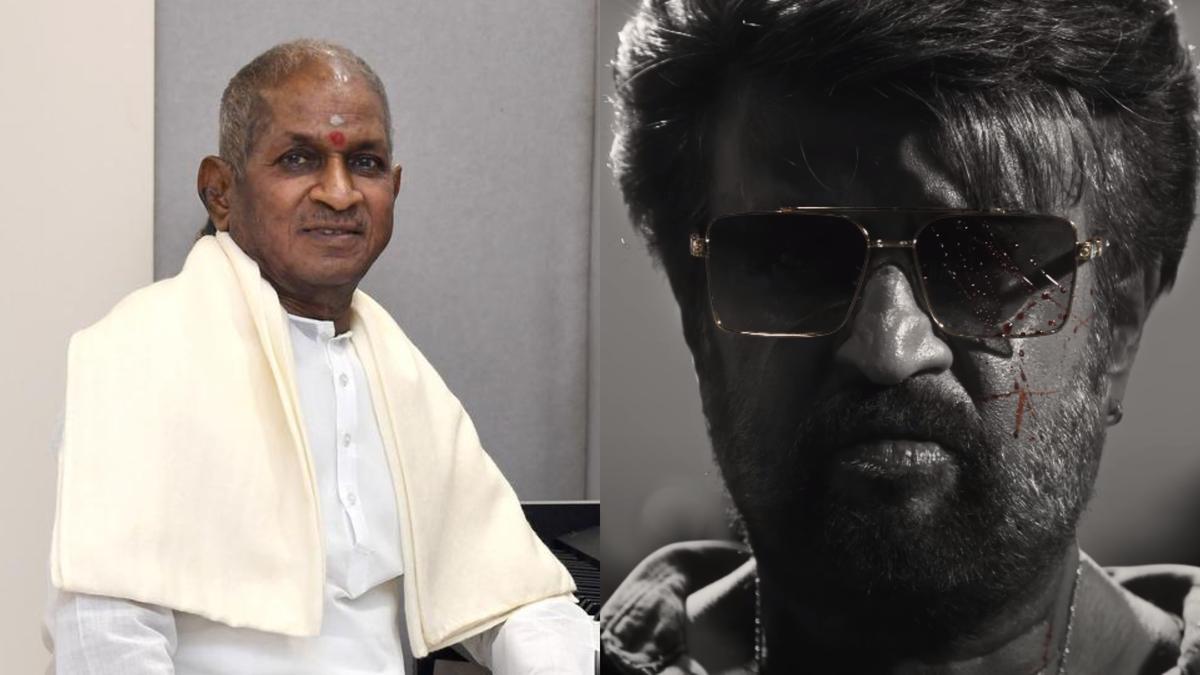
It’s a well-known fact among music aficionados and film industry insiders that legendary composer Ilaiyaraaja doesn’t take lightly to the unauthorized utilisation of his musical masterpieces. With a staggering tenure in the music business that covers more than four decades, Ilaiyaraaja is no stranger to the courtroom when it comes to protecting his creative compositions. He’s an artist who advocates fiercely for his legal and creative rights, currently engaged in an ongoing courtroom battle over the assertion of “special moral rights” on a comprehensive portfolio of over 4,500 songs crafted for upwards of 1,000 films dating from the 1970s to the 1990s.
The latest skirmish in the saga of his trademark defence unfolded today as news broke that the esteemed composer had issued a legal notice to Sun Pictures. The fault line? The ostensible unauthorized appropriation of Ilaiyaraaja’s ‘Vaa Vaa Pakkam Vaa’, a timeless melody from the 1983 blockbuster ‘Thanga Magan’, which found itself resampled in a promotion for the much-anticipated Rajinikanth vehicle, ‘Coolie’.
In an homage-laden promotional clip heralding the Lokesh Kanagaraj-directed ‘Coolie’, Sun Pictures orchestrated a vibrant homage to the celluloid icon Rajinikanth, featuring a rhythmic reinvention of the acclaimed song. This sequence of events has now catalyzed the current copyright contention.
The legal notice, dispatched by Ilaiyaraaja’s legal representation, underscores the alleged infraction as an explicit violation of the rights held by one of the planet’s preeminent composers. It asserts that the maestro has exclusive dominion, inclusive of moral rights, over his compositions. Moreover, it delineates that the use of the music sans “necessary and appropriate permission/license from the composer” is tantamount to breach and unauthorized exploitation of the copyright.
The communiqué delivered by Ilaiyaraaja has set clear terms: Sun Pictures must negotiate consent from the composer for the song extract’s usage in ‘Coolie’, or alternately, excise the track altogether from the film’s materials. Should Sun Pictures elect to ignore the ultimatum, they’ll find themselves facing formidable legal proceedings.
As the film industry awaits a formal reply from Sun Pictures, it’s noteworthy that ‘Coolie’ lists Lokesh’s frequent collaborator, Anirudh Ravichander, as the music director. Anirudh, who previously helmed the score for Rajinikanth’s ‘Jailer’, is thus embroiled indirectly in this legal maelstrom. Past partnerships between Sun Pictures and the superstar have yielded such box office hits as ‘Enthiran’, ‘Petta’, ‘Annaatthe’, and the aforementioned ‘Jailer’.
This instance isn’t simply about a clash over a song but points to a broader issue within the multimedia landscape: the balance between homage and copyright law. Ilaiyaraaja’s notice serves as a reminder that regardless of one’s status in the industry, respect for the proprietary rights of artists remains paramount.
Artists from all arenas of creativity—be they composers, filmmakers, or writers—regularly contend with the challenge of protecting their creative rights in an environment increasingly rife with technological advancements that make replication and distribution easy and widespread. This case highlights the often complex dynamics between creativity, commerce, and copyright, underscoring the necessity for clear legal frameworks that safeguard artistic integrity.
As the public eagerly anticipates the launch of ‘Coolie’ and watches this copyright conflict unfold, the debate over intellectual property rights continues to be a hot topic in Tamil cinema and the wider scope of Indian cinematic arts. How Sun Pictures proceeds in response to the maestro’s legal notice will be a significant footnote in the ongoing discourse around the protection of artistic works in the age of digital dissemination and cultural remixing.










